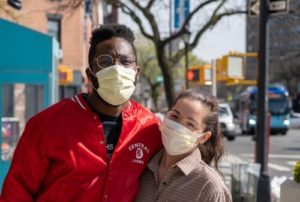 To say that it is a weird year for college students is an understatement.
To say that it is a weird year for college students is an understatement.
When I think of college, I think of it being a time to meet new people and “find yourself.” I think of busy cafeterias and full lecture halls. This year schools look a lot different.
Some schools are fully online, while others are doing in-person classes with restrictions, and others are doing a hybrid model. Some students are choosing to defer their enrollment altogether because none of these options seem desirable.
College students know they won’t get the typical college experience because of the pandemic and want to wait to attend school until they can.
I remember my first night of college. My wing had a “wing event” where all my hallmates went to get ice cream at Sonic together. Around October there was an event in which all organizations on campus set up booths and you could walk around and see what interested you. I signed up for Psychology Club. Events such as these are online or cancelled this year, which makes it more difficult to try new things and meet new people.

Whether your classes are virtual, in-person, or you decided to defer a year, you are undoubtedly experiencing grief. Grief does not just occur when there is a loss of a loved one.
People have feelings of grief when life goes differently than they envisioned or there is a loss of any kind. There are so many losses when it comes to COVID. School is different, sports are cancelled, events have been called off, we can’t see friends, etc.
Fortunately, something that helps with grief is gratitude. Since it’s November, expressing gratitude often happens if not personally, at a family holiday or tradition. Sometimes it can be hard to think of something that you are grateful for, so here are some tips to start your gratitude practice.
Gratitude Tips:
- Write down three things that you are grateful for each day
- Let people in your life know what you appreciate about them
- Make a collage of things you are grateful for; engage someone in your bubble to clip magazines together!
- Try to think of the positives in negative situations (eg. being able to stay connected with friends and family through virtual get-togethers)
- Make a gratitude practice part of your routine by thinking about what you are grateful for at the same time every day (such as meal time or before bed)
- Post what you are grateful for on social media
- Expressing gratitude is not intended to minimize your feelings of anxiety, sadness, etc. You can feel your feelings AND be grateful for something.
COVID is hard and it has taken and will take a lot away from us. Despite this, what is something you can find to be grateful for?
Also see Preventing Social Isolation to Protect Our Mental Health
Blog written by Andrea Schroeder, MS, LPCC, therapist at Sentier Psychotherapy











